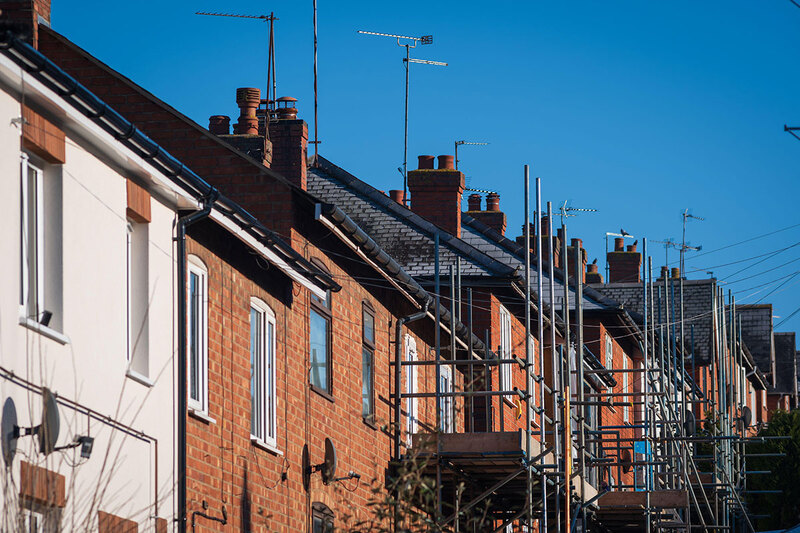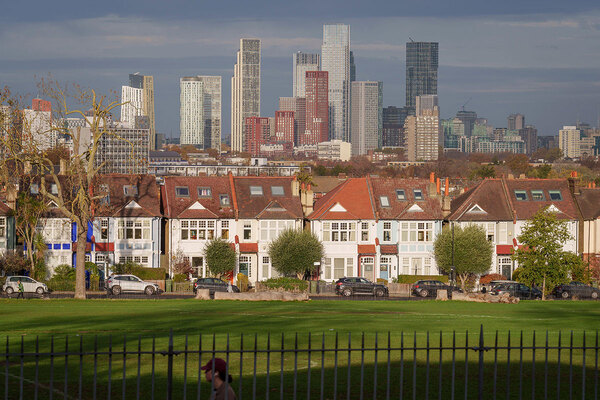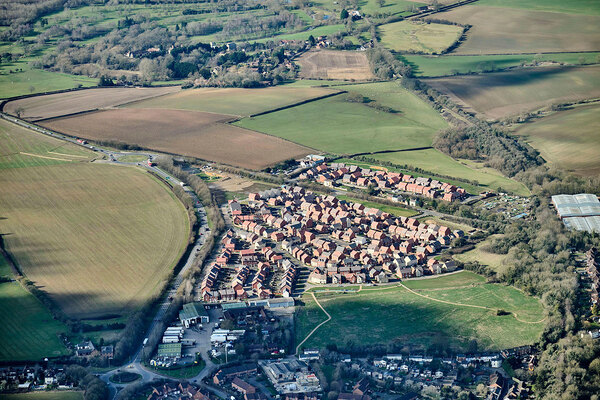Housing associations on course to miss EPC C deadline by two years
Housing associations are not predicted to have upgraded all their homes to an Energy Performance Certificate (EPC) rating of C or above until 2032, two years after the government’s deadline.

Private registered providers – meaning housing associations, for-profit providers and charities – upgraded their properties to EPC C at a rate of 320 homes per day in the year to March 2025.
However, with more than 820,000 social homes currently falling short of the EPC C target, retrofitting properties at the current rate would mean missing the 2030 target by two years, according to analysis of Regulator of Social Housing data by property agency JLL.
To meet the government’s 2030 deadline, the rate at which homes are upgraded to EPC C would need to rise to 450 homes per day, the report found.
Most of the homes still requiring upgrades need only minor interventions. According to JLL, 80% of properties yet to be retrofitted were currently EPC D-rated, with the remaining 20% rated lower than D.
Social landlords have made progress on retrofitting their homes in recent years. Private registered providers owned almost 3.3 million homes in March 2025, of which 75% had an EPC rating of C or above, up from 71% a year earlier and 68% in 2023.
The rate at which properties are being upgraded to EPC C has also increased, from an average of 220 homes per day in the year to March 2024 to 320 homes per day in the year to March 2025.
Marcus Dixon, UK head of living and residential research at JLL, said: “Private registered providers are committing significant time and investment to improve their housing stock and to meet the government’s 2030 target.
“But there will need to be an even more significant effort as we approach the deadline to go even further and faster.”
Mr Dixon said the retrofit effort will come at “an immense cost”, but one that is “necessary” as a step towards the UK’s net zero goal and towards ensuring heating the country’s homes is more cost effective.
The English Housing survey puts the average cost of upgrading a home to EPC C for private registered providers at £5,752 per home. Based on the number of homes currently below EPC C at today’s rates, landlords would need to budget more than £4.7bn.
However, JLL argued the actual cost of upgrading properties could be even higher, with providers spending up to an average of £12,000 per property. Using this higher figure, the bill to upgrade the remaining homes could be as high as £10bn.
That means the total daily cost for landlords will rise from £2.6m to £5.4m a day from now until 2030 as they scale up to the required rate of 450 upgrades a day.
JLL’s analysis assumed all the non-compliant homes need to be upgraded, and that all new acquisitions will be EPC C or above. However, it noted that not all properties are capable of being upgraded to EPC C, either physically or due to excessive costs.
In response to the analysis, Kevin Garvey, head of member relations at the National Housing Federation, told Inside Housing: “Housing associations have long been committed to decarbonising their homes and ensuring that residents benefit from homes that are affordable to heat. This is why 72% of their social homes are [rated] EPC A-C, more than any other tenure.
“However, in order to continue this work at the rate required, and develop and sustain the industry and workforce needed, the government must bring forward its Warm Homes Plan. This will provide housing associations with the clarity they need on EPC reform and prevent the sector chasing targets that continue to change.
“Crucially, the plan needs to come alongside an additional £3.7bn of funding for energy efficiency in social housing – to reach the £5.1bn recommended by the National Infrastructure Commission.
“We look forward to the publication of this plan and to working with the government to deliver on these vital ambitions.”
In September, Inside Housing revealed that an £800m government scheme to decarbonise social homes had underperformed, with fewer than a third of targeted retrofits completed.
As of June, just 25,009 homes – or 27% of the original target – had been successfully retrofitted under Wave 2.1 of the Social Housing Decarbonisation Fund.


